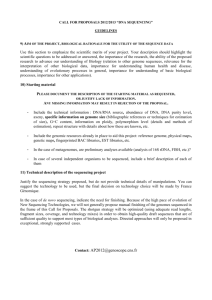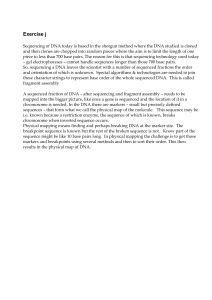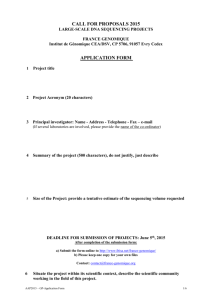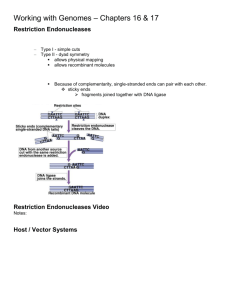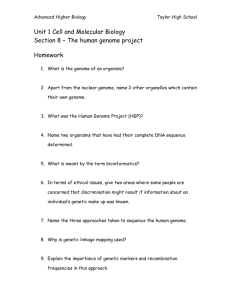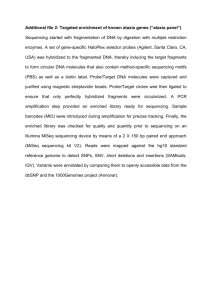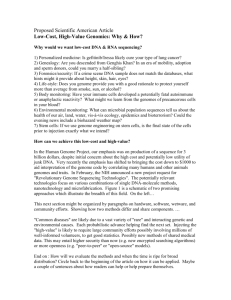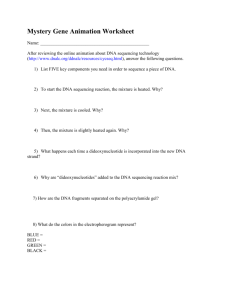– dideoxynucleotide sequencing DNA Sequencing or Sanger sequencing Dideoxynucleotide
advertisement
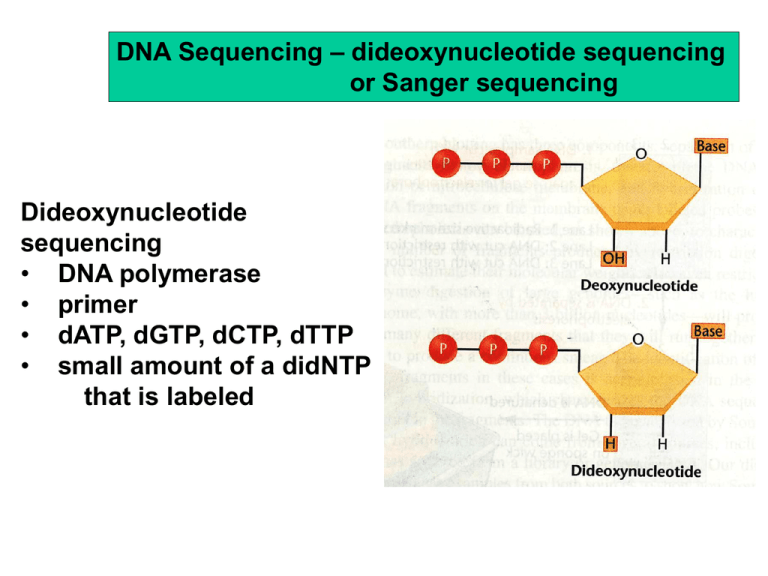
DNA Sequencing – dideoxynucleotide sequencing or Sanger sequencing Dideoxynucleotide sequencing • DNA polymerase • primer • dATP, dGTP, dCTP, dTTP • small amount of a didNTP that is labeled Output of a DNA sequencing reaction using fluorescently labeled bases Sequencing is done robotically and assembled by computer Two competing Groups Sequenced the Human Genome Craig Venter Francis Collins Celera Inc. International Human Genome Consortium “Draft” Sequence Published Feb 2001 “Finished” Sequence 2004 ESTs – expressed sequence tags – cloned and sequenced mRNAs Genome sequencing based on mapped “contigs” (overlapping genomic DNA clones) Map-based Cloning: 1. large DNA clones are mapped 2 .individual contigs are restriction mapped subcloned and subclones are sequenced “Shotgun Cloning” approach used by Celera 1. genome cut into small pieces with REs and cloned 2. clones are sequenced and contigs identified by overlapping end sequences 3. chromosome sequence assembled Computers assemble the sequence of individual contigs into one continuous sequence Map-based cloning – highly accurate and complete sequence Difficulty with map-based cloning – mapping all the contigs takes a LONG time Shotgun cloning is fast (and cheap) and reveals most of the genes Difficulty with shotgun cloning – repeated sequences cause places to be missed (gaps) or misassembled (put in wrong place) Celera DNA from five subjects was selected for genomic DNA sequencing: two males and three females one African-American, one Asian-Chinese, one Hispanic-Mexican, and two Caucasians (27.3 million sequence reads; 14.9 billion bp of sequence) Hugo DNA from 8 males was sequenced - 23.1 billion bp sequenced Human genome size - 3.2 Gb only 2.9 Gb was sequenced centromeres and telomeres were skipped Gaps - about 10% of the sequence was in gaps between clones Next Gen Sequencing the quest for the $1000 genome Read length (bases) Runtime (days per gigabase) Cost ($ per 1000 bases) Capillary 1000 500 $0.10 454 450 2 $0.02 Illumina 75 0.5 $0.001 SOLiD 50 0.5 $0.001 Current work focuses on sequencing different individuals to see how we differ and how these differences correlate with health and disease --- We are all 99.9% the same.
